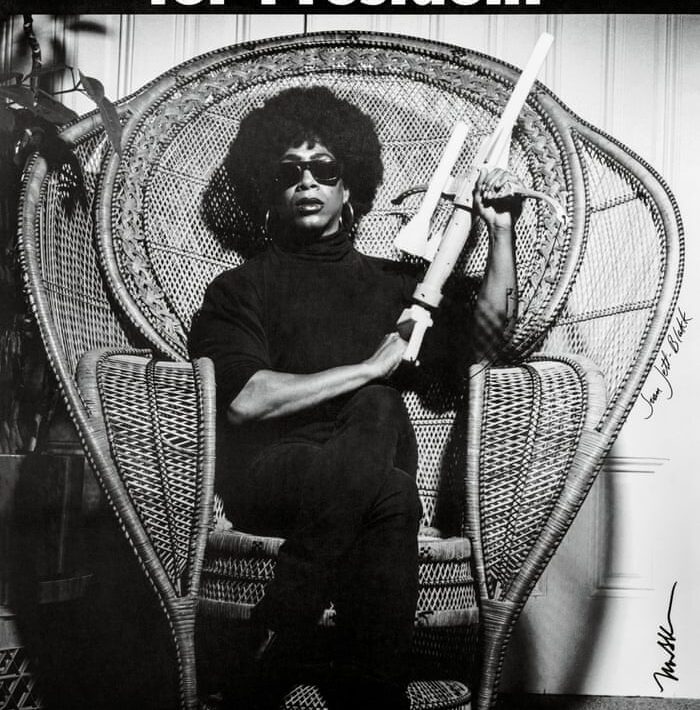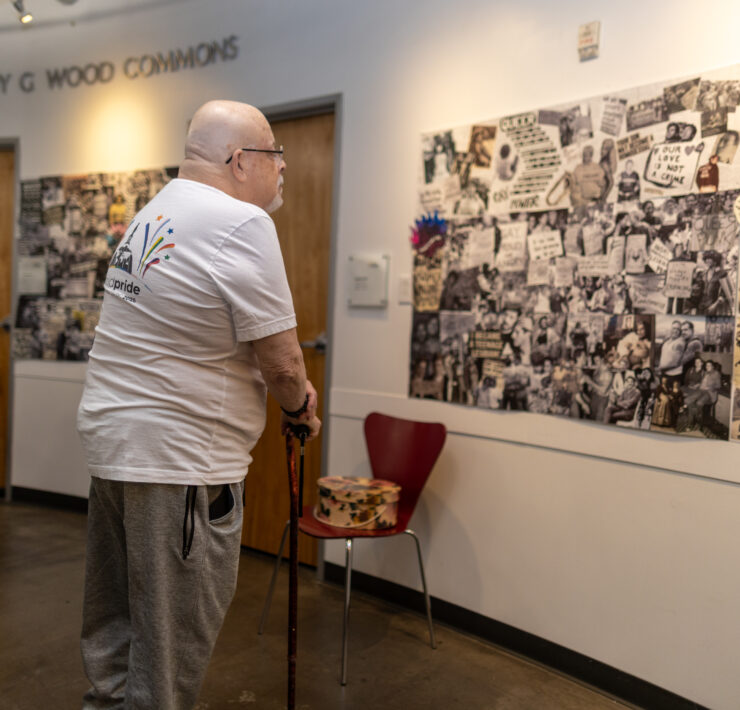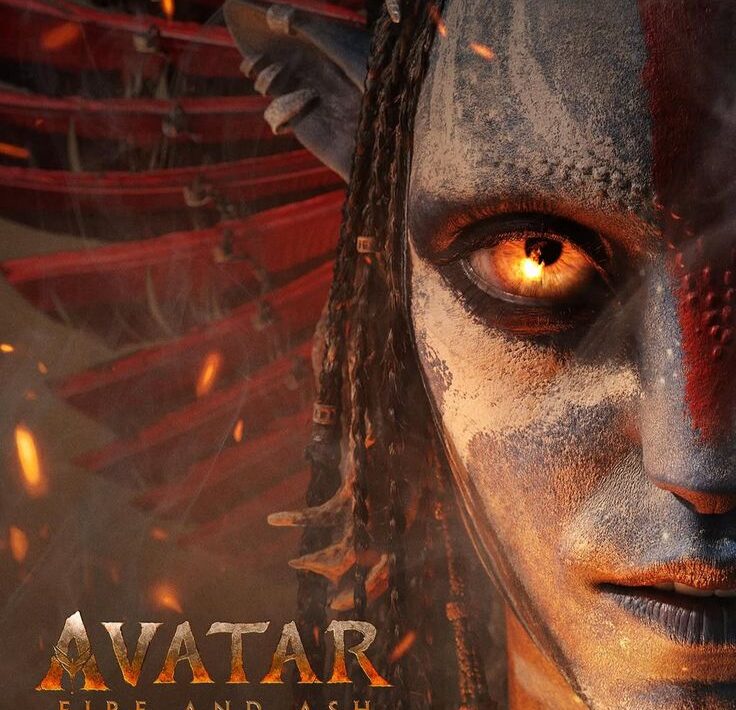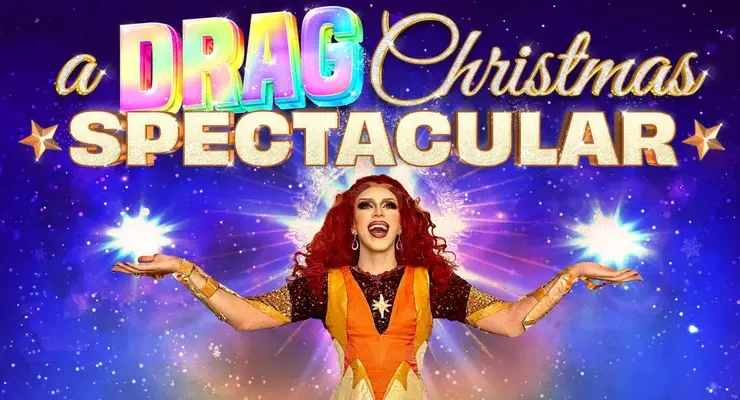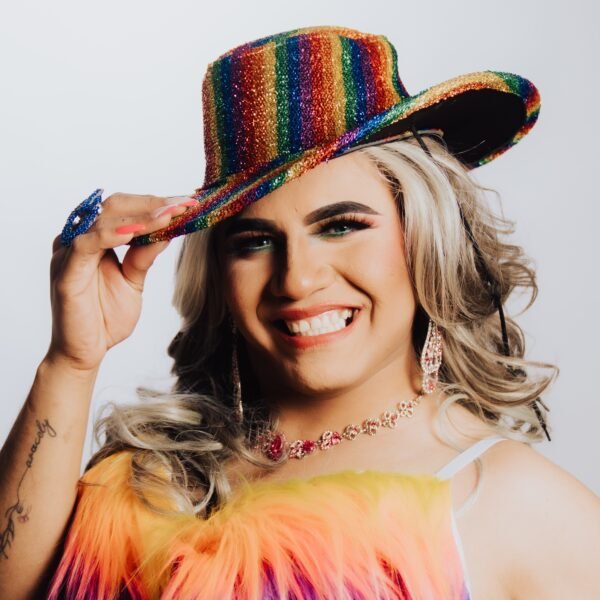Q&A with ‘Faux Queen: A Life in Drag’ Author Monique Jenkinson

What does it mean to be a drag queen? And how does life before queendom shape you? These are questions addressed in Amble Press’ Faux Queen: A Life in Drag by Monique Jenkinson. I had the opportunity to (virtually) sit down with Jenkinson and chat about her book and drag as art and culture.
As I was reading the book, I noticed you talk a lot about the music that inspired you growing up. Is there any current music you are inspired by and how has music affected your art?
Music has completely affected my art form in many different ways. Music is always inspiring what I do. I go in and out of contemporary music and older music. We live in a time where everything is available at once, and so we’re kind of outside the linear time where music is concerned. It’s such a hard time. I’m married to a musician who is also a music fanatic, so I imagine it’s a little bit like being married to a chef, where you’re just like, “Oh! I don’t know what this is, but it’s delicious and I love it!” So, I’ve gotten a little bit lazy about shopping for my own music (whoever shops for music anymore). One of the things that got me through recent times and kept a pep in my step is Kylie Minogue’s latest record. So yeah, I’ll say that for now.
There’s a line in the book where you talk about how demons were exorcised on the stage. Is that something that you think is still happening in the drag scene?
I think that demons are still being exorcised, but people maybe need to do it in different ways. You can’t twirl around in any town without hitting a drag show. People are still working their demons out. I have been surprised to notice how much sometimes it feels like an advertisement for the person. It feels less like an artist working their shit out and more like, “Yas queen, I’m going to make a video about myself and do 500 death drops.” That can be super fun to watch too, but it’s just not getting to what moves me the most. But I do think that people enjoy working out their demons, for sure!
Do you think that’s happening in more of the underground drag scene or just kind of all over the place?
I think it’s more in the underground drag scene … but who’s to say what an underground drag scene is anymore; I might not even know about some of the drag happening in some of the places. During the pandemic, a lot of us went to video drag, and I saw some really wrenching, beautiful things happening in the context of video drag that maybe had a lot of eyeballs on them, so they weren’t necessarily underground, but they felt really heartfelt.
What’s been your favorite performance that you have ever done?
Oh my gosh, there’s been a lot, but I have to say, have you read the whole book, or have you skipped around?
I’m halfway through. I was reading it linearly, and I was so enthralled, and it’s so good!
I was going to say, I’m glad it’s working linearly but also, I keep saying that it’s like a collection of essays in drag as a memoir, so you can skip around. I sort of do the spoiler alert the very beginning of the book that me winning Ms. Trannyshack will probably my favorite performance I’ve ever done, and it’s just because of the context? That performance, and then getting to do it again for the kiss-off party at the last Trannyshack—That was a huge pleasure to do it … that number which was to “Someone Saved My Life Tonight” by Elton John, you’ll get to the whole story.
I’m so excited! like I could not stop reading! It’s like, “OK I have to get up; I have to write questions,” but I wanted to keep reading. I haven’t recognized myself in in a book in a very, very long time, so it’s really cool
I worked so hard, so that just warms my heart, and it actually warms my heart that someone I don’t know and who doesn’t know any of the people I’m talking about is feeling that way about it
Speaking of that, I know writing a book can be an intensely personal thing, so is there anything that you learned about yourself in the process of writing this book?
I learned a lot about myself. I mean, it was something that, when I started to write it, I thought, like, this is going to be an engrossing project; it’s going to be a deep project, it’s going to be a hard project, but it really it changed me in that way that people talk about becoming a parent changes you.
I feel like it’s just sort of changed my DNA in a certain way, so, like, it’s definitely sent me back to therapy for sure. I definitely have learned things about myself in the process. One of the things that I had to reckon with … I feel a really deep responsibility to do right by people in my community. I feel like I’m standing in this place where I’m totally an insider on the one hand and people might see me as an outsider on the other hand. I understand some people either don’t with their stories told or are sensitive about having their stories told, so I wanted to really make sure I was doing that correctly. Pretty much everyone I talked about in the book, I read the parts that they’re in to them … not necessarily always to ask for permission but to just kind of make sure it’s all right and like it was landing right.
I noticed you just mentioned that you feel like kind of like an insider and kind of like an outsider, Could you elaborate on that? Did you mean in book world or in drag or just in everything?
In every world—I’m really new to book world, and book world has been very kind to me. I’m also really curious about how people are going to respond to it being well-written and maybe not necessarily having expected it to be. I’m wondering how my insider-outsider status is going to land in book world, and we’ll see.
As far as being an insider/outsider in drag, I’ve always felt very welcome in the community. There were other communities that were like, “What are you doing here? You’re a woman!” Like, I mean, that happened, and there’s this anecdote about it in the book where I felt very kind of totally outside of my community, where I felt very shut out by a couple queens, and luckily, I’m so supported in my community that I can just look at those people and feel like great. I don’t have to hang out with you. Like, I don’t hang out with misogynists; I don’t hang out with people who don’t want to hang out with me. Thank goodness I haven’t had to break down the barricades of a club that didn’t want me. I was really invited in. It was almost like the door was open, but I sort of like tripped through it,
One of the things that also really stuck out to me is you talked about how the language in the drag scene has changed over the years and over time. What are your thoughts on that? Do you think that changing language limits drag? Does it expand it into a whole new world? How does it change the experience of the art form?
That’s such an interesting question, and this is one of the moments where I had to reckon with it. I was with the club during a specific time, and I won a title called Ms. Trannyshack. This is a word we don’t use anymore and yet, I can’t talk about what I do without using that word. That’s why I had to reckon with that.
I hope I struck a balance with that, where I’ve explained it and been sensitive enough, like a balance between being sensitive and also going like look: We were using it a certain way and … I can’t revise history. I don’t believe in revising history. The way it was used at the time was in a very loving way as a cute nickname between drag queens and trans women for literally everyone in the scene, myself included, and so I recognize language has to change, but I also hope people can embrace that. I believe in context, and I think that we do lose something with not being able to use certain words but that happens. I do believe if bad people are using it, it’s being used in a bad way.
You talk a little bit about your struggles with an eating disorder in the book. How did that experience kind of affect who you are as a person now, and does that come into play into your performance art?
I mean, that was one of the demons I worked through on stage. In the book … I talk about one of the numbers I did at the shack, which was a song by Sonic Youth called “Song for Karen.” It’s a song about Karen Carpenter, and it was for a night called a Cult Movie Night. I did a tribute to “Superstar” by Todd James, which is the film that he made with Barbie dolls playing Karen Carpenter so, yes, like, that was a very explicit, “I’m going to work this out,” but it wasn’t something I think people really knew.
I think anyone who’s got a background in ballet, you kind of usually deduce that they probably have some relationship to disordered eating because it’s just so prevalent. It wasn’t something that I was reckoning with then as a phenomenon in my life. I do think many of us, whether we’re in ballet or not—especially women and gay men—I think many of us have had to kind of deal with body issues, whether it’s dysmorphia or dysphoria or shame in its many guises,;I think that’s something that, however you’re dealing with it, can be kind of lurking presence.
What do you what impact do you think that the mainstreaming of drag has had on culture as a whole?
I think in any art form, when it expands, you still get people digging in and going deep. It’s kind of like all the weirdos come to the same party; it’s this wonderful, warm, small community, and then what happens when it expands, then it just sort of fractures off. You still have the weirdos; you just have them doing, like, their own weird party … That’s so specific, but when it gets huge, then it kind of creates room for these specific things to splinter off but then sometimes you lose when certain shows get huge they lose their edge a little bit.
Trannyshack used to have these crazy weird themes when it was small on Tuesday night at midnight, but then when it got huge, it was always like you couldn’t make money on the Saturday night. It’s a huge show unless the theme was Kylie Minogue versus Madonna or like whatever. I remember in that era of Trannyshack, Heklina did a Kate Bush versus Bjork night, which was amazing, but it’s still, like, it had a third of the audience that that Britney versus Christina would have had.
So, it does lose something, but I feel like in the in the grand scheme of things, it’s a different kind of world. It’s very refined; it’s gotten really easy for people to do incredible makeup. You can look at it tutorial or follow a bunch of queens on Instagram and do beautiful, beautiful professional quality makeup, but I think the ineffable part is the performance. To me, that’s always been really important note that is you have that “it factor,” and which is like an ineffable thing that comes from live performance. So, a lot of these queens can paint, and I love it and I appreciate it but I’m more interested and invested in performance.
Faux Queen: A Life in Drag is available online at Amble Press Books and Amazon.
Photo by Gareth Gooch



